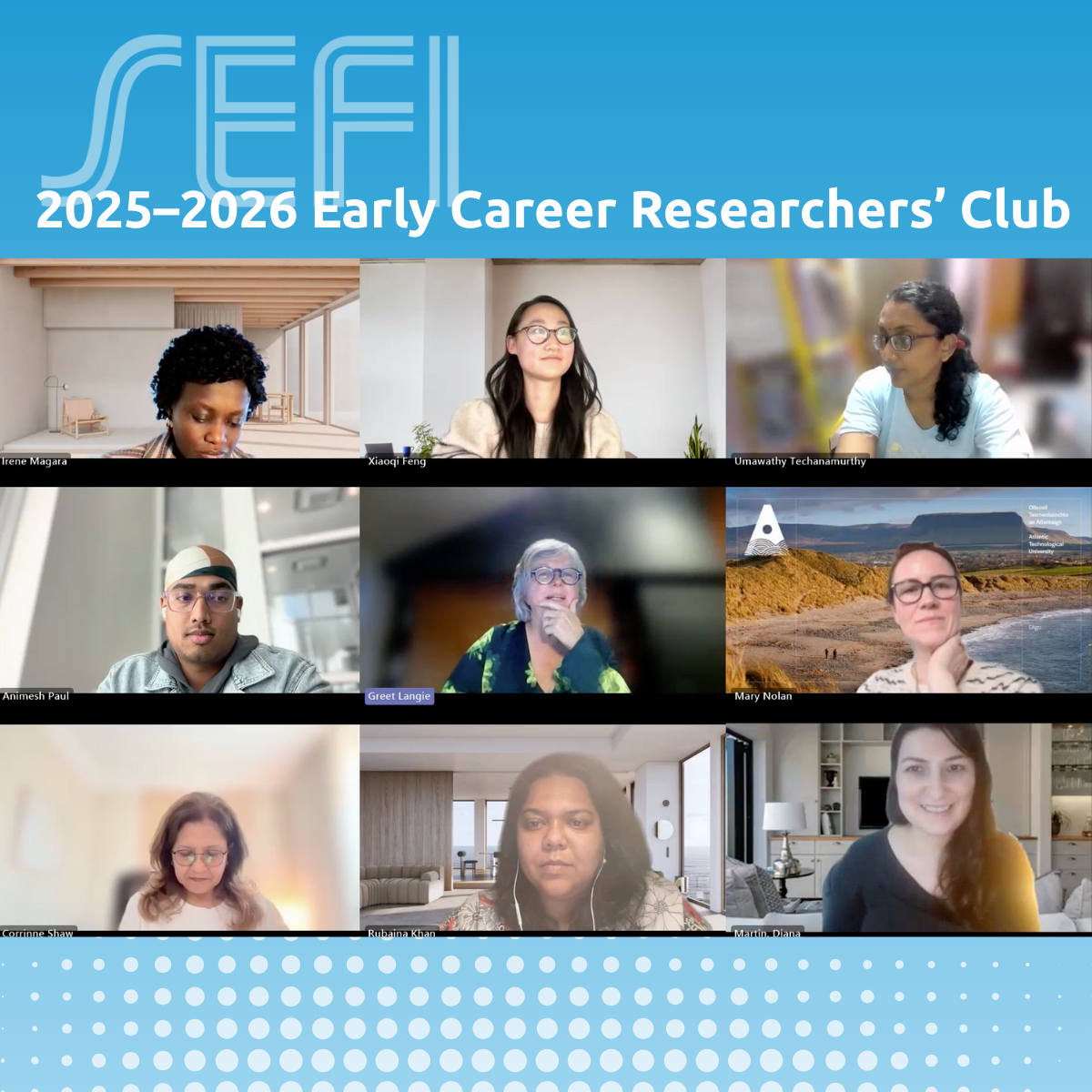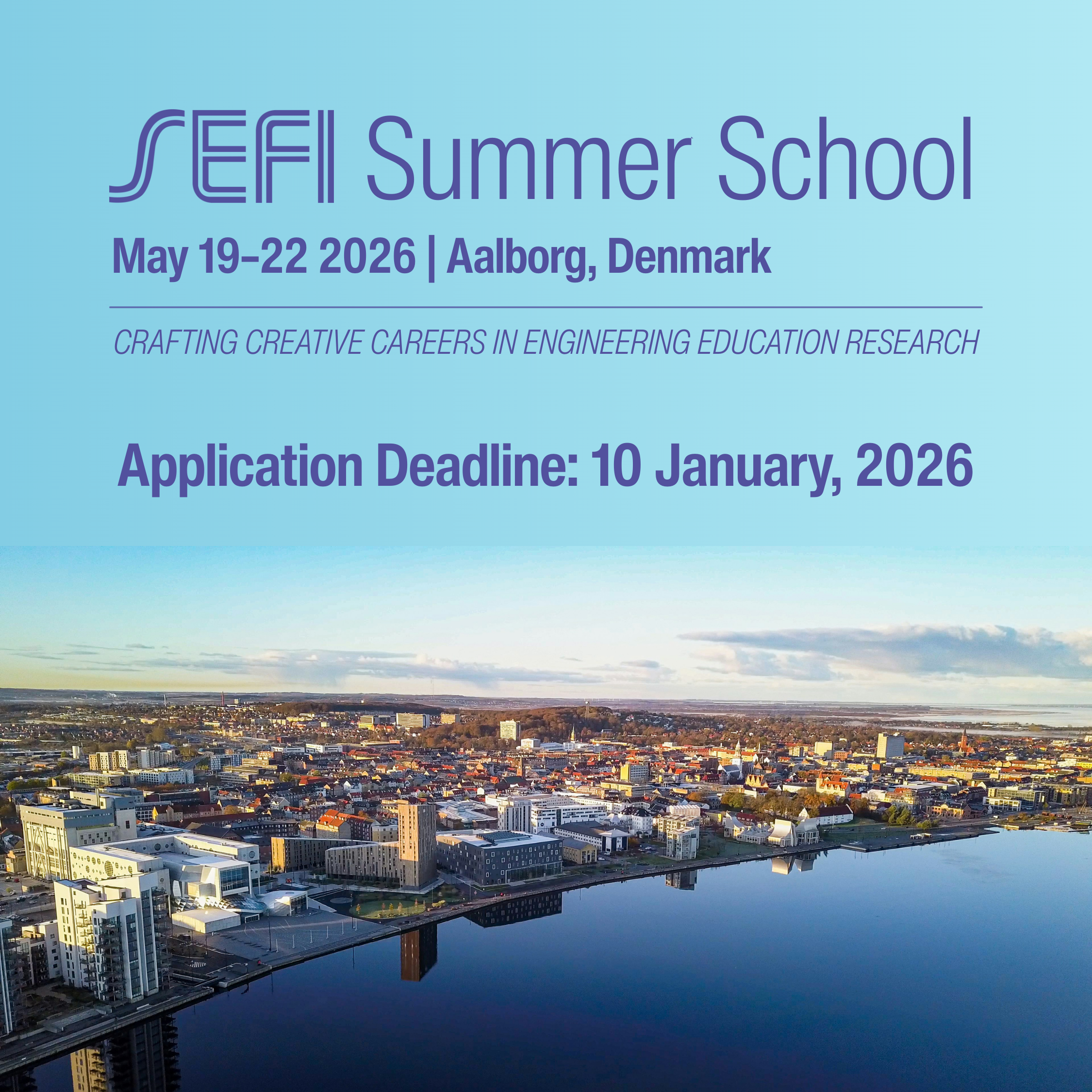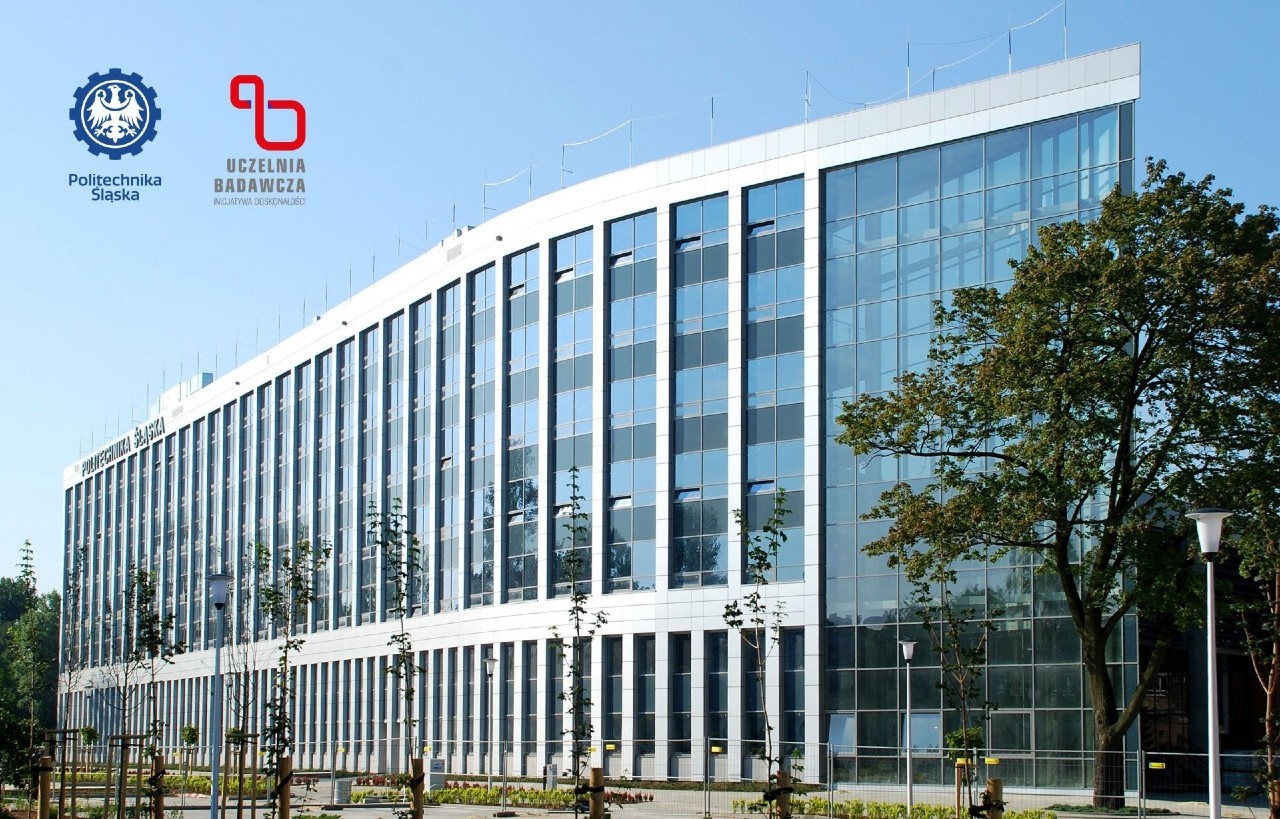The SEFI Early Career Researchers’ Club is a 9-month initiative designed to support and connect…
Margaret Webb (Virginia Tech), Jessica Deters (University of Nebraska at Lincoln), Maya Menon (New Jersey Institute of Technology), Marie Paretti (Virginia Tech)
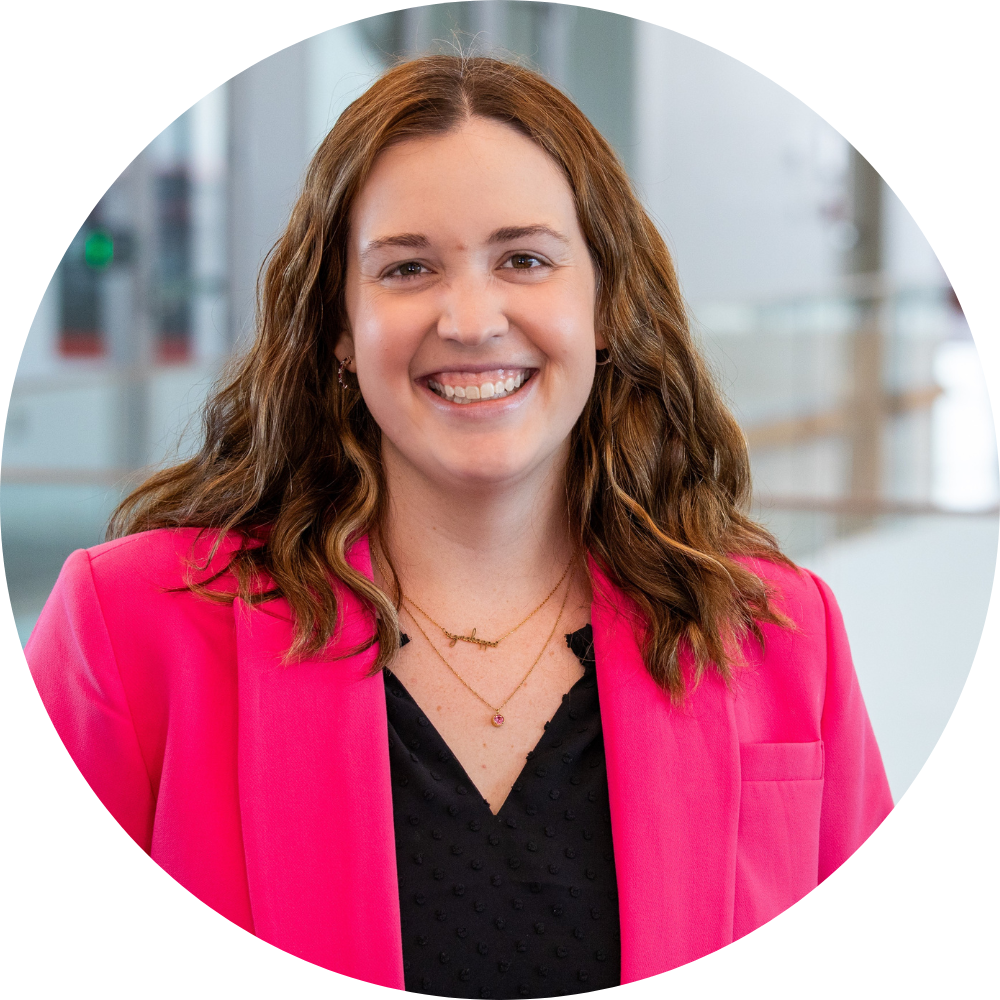
Our seven-year journey with a U.S. National Science Foundation-funded graduate program has illuminated both opportunities and challenges of interdisciplinary graduate education. As the program’s Education Director (Paretti) and participant researchers (Deters, Menon, and Webb), we’ve examined the experiences of faculty and students in and beyond our program through multiple lenses to understand how such programs develop more interdisciplinary engineers and how the persistently siloed structure of higher education imposes systemic barriers to that development.
Our research trajectory has evolved from exploring interdisciplinary competencies and identities at individual levels using Future Possible Selves, to more system-oriented approaches using Lattuca & Pollard’s (2016) framework for decision-making and Bronfenbrenner’s (1979, 2005) Ecological Systems Theory (EST). This shift has unveiled the interconnected nature of factors influencing interdisciplinary graduate education in and beyond engineering.
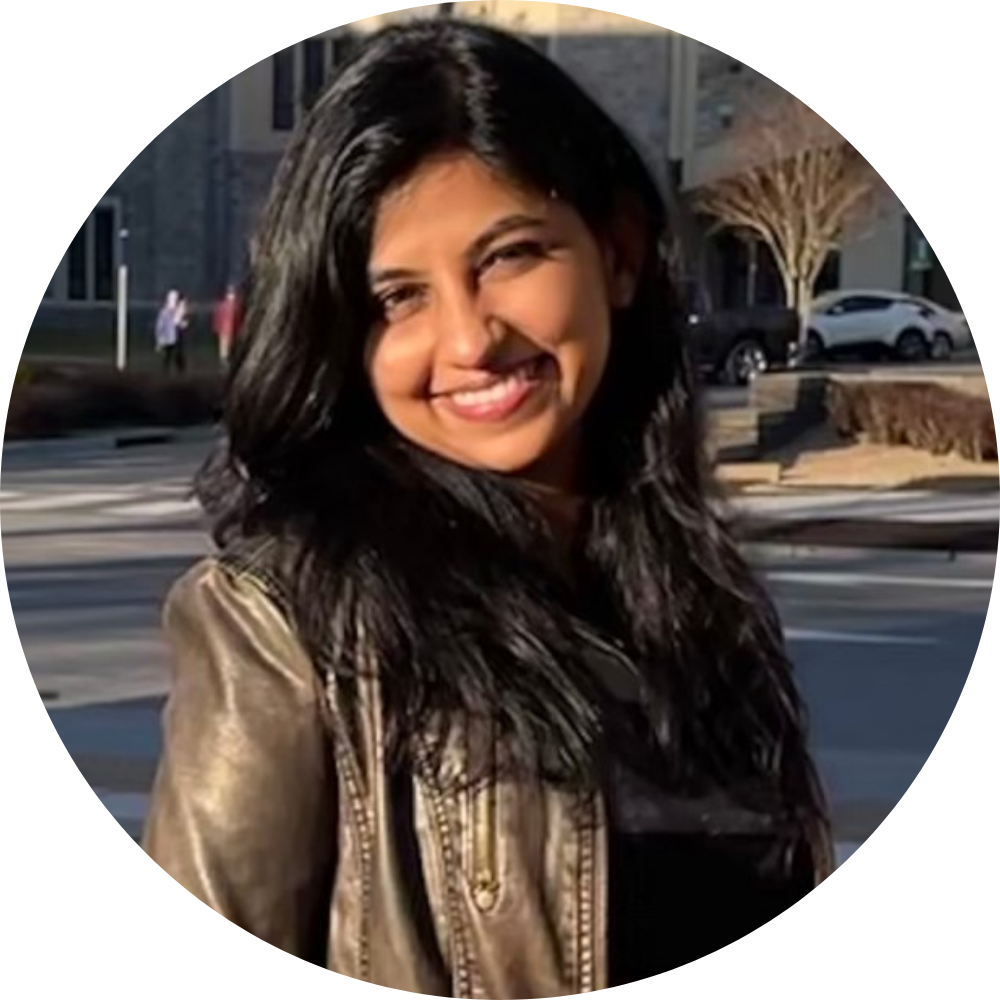
Our findings have characterized complex interactions between individual motivations, program structures, and institutional contexts for students and faculty. While many students exhibit genuine interest in interdisciplinary work, they face barriers like conflicting course requirements, research expectations, and cultural norms across departments, as well as differing personal goals for graduate education. Similarly, faculty engagement, though essential, is not always departmentally or institutionally supported. While many educators recognize the value of interdisciplinary approaches, they often struggle with allocating resources, aligning diverse perspectives, and navigating institutional bureaucracy. In the U.S., faculty engagement in interdisciplinary education is often driven by individual values and intrinsic motivation, with limited institutional support, risking burnout and limiting sustained impact.
Such findings led us to system-level studies that illuminated the need for interconnected changes directed toward deeper institutional support, faculty buy-in, and adaptive curricula. EST, in particular, highlighted the ways in which the siloed structure of universities creates friction for interdisciplinary initiatives and how, within our program, the core functions of disciplinary departments hindered interdisciplinary work for STEM and non-STEM participants.
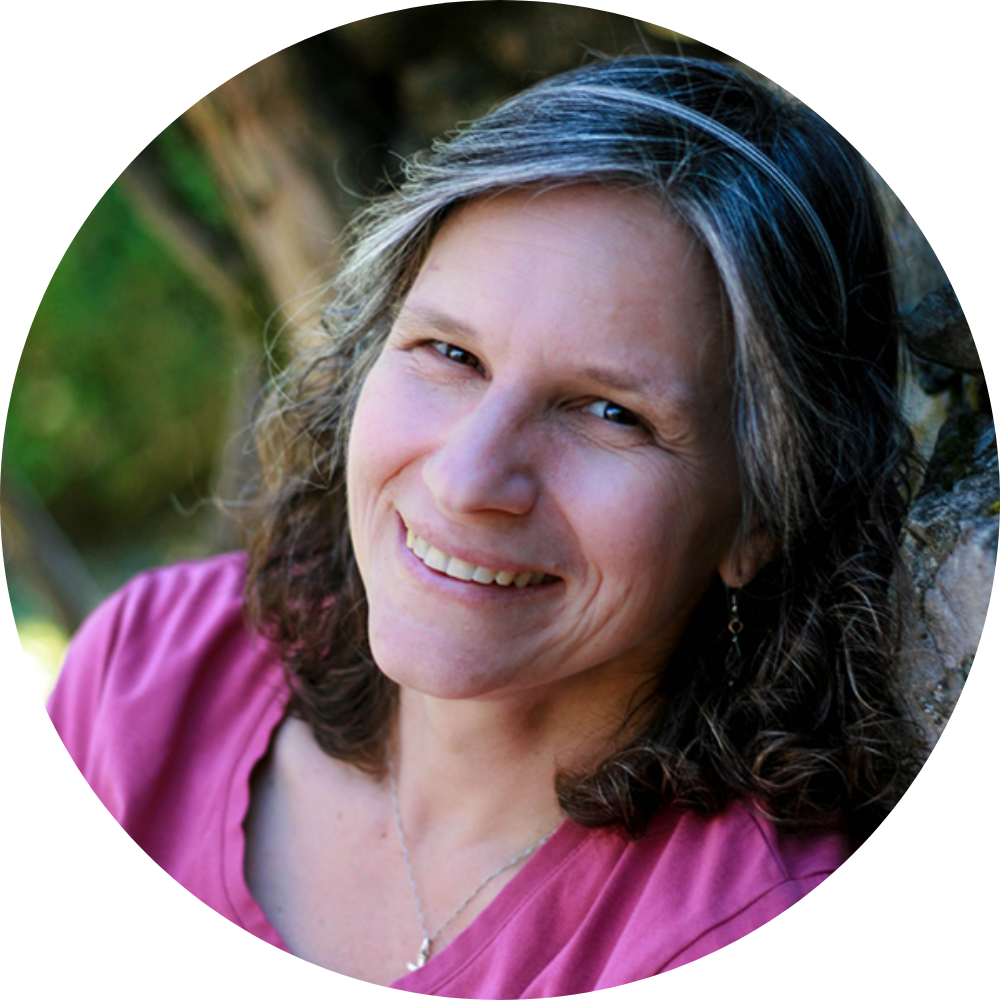
Comparative research further illuminated the importance of cultural & institutional context. For example, Webb found differences in how graduate students in Finland and the U.S. defined interdisciplinarity. Menon found that at a Danish university, national support for sustainability shaped institutional norms in ways that more effectively facilitated education for sustainable development than the more individually-driven approach at a U.S. site. Comparing the U.S. and South Africa, Deters illustrated how the COVID-19 pandemic exposed and exacerbated existing norms of engineering culture that made undergraduate courses more difficult – norms that also formed barriers to interdisciplinary education for engineering graduate students.
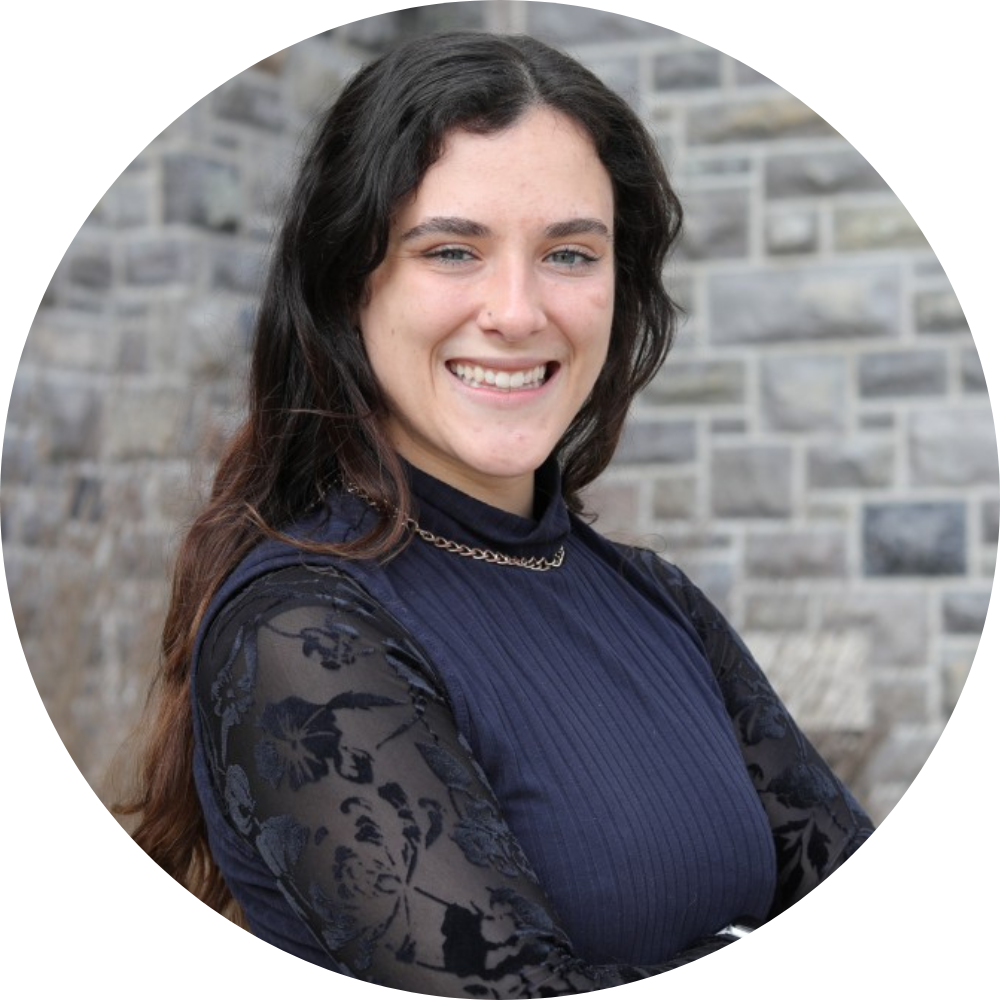
Collectively, our findings show that, in the contexts we examined, interdisciplinary education was often isolated from, secondary to, and misaligned with the mission and culture of engineering. Consequently, programs in which individual engineering faculty work tirelessly to create interdisciplinary opportunities were unsustainably taxing. To promote interdisciplinary graduate education, we need to shift how engineering departments organize themselves and are organized by their institutions. These shifts must happen in their core functions, the roles faculty and students adopt, and the activities they engage in and are valued for. A system-oriented approach would embed interdisciplinarity into the institutional fabric of engineering to create sustainable pathways beyond disciplinary boundaries.
Standing at the edge of this vision, we need deeper, perhaps riskier, dialogue across the engineering education community. We offer the following questions as starting points:
- How can we redesign university structures to support interdisciplinary education for engineers?
- What cultural and systemic changes are necessary to make interdisciplinary work valued in tenure, promotion, and funding?
- How can we rethink engineering curricula to more effectively enable interdisciplinary education?
- What strategies foster sustainable faculty engagement in interdisciplinary education?
- How do differences across countries impact interdisciplinary programming, and what can we learn from these comparisons?
References
Bronfenbrenner, U. (1979). The ecology of human development: Experiments by nature and design. Harvard University Press, 2, 139-163.
Bronfenbrenner, U. (2005). Making human beings human: Bioecological perspectives on human development. Sage.
Deters, J. R. (2022). Investigating student experiences of engineering culture during COVID-19: A comparative case study [Doctoral dissertation, Virginia Tech]. VTechWorks. https://vtechworks.lib.vt.edu/handle/10919/109720
Deters, J. R., Leydens, J. A., Case, J., & Cowell, M. (2024). Engineering culture under stress: A comparative case study of mechanical engineering student experiences. Journal of Engineering Education, 113(2), 468-487. https://doi.org/10.1002/jee.20594
Deters, J. R., Menon, M., Paretti, M. C., & Webb, M. E. B. (2021). Imagining the future interdisciplinary scholar: Exploring interdisciplinary identity development using possible selves. In Proceedings of the joint Research in Engineering Education Symposium (REES) & Australasian Association for Engineering Education Conference. https://par.nsf.gov/servlets/purl/10354939
Deters, J. R., Paretti, M. C., & Case, J. (2020). How implicit assumptions about engineering impacted teaching and learning during COVID-19. Advances in Engineering Education, 8(4), 1-5. https://advances.asee.org/aee-covid-19-home-page/
Deters, J. R., Paretti, M. C., Zobel, C., Cowell, M., & Irish, J. L. (2019). Assessing interdisciplinary competency in the disaster resilience and risk management graduate program using concept maps. In 2019 ASEE Annual Conference and Exposition. https://par.nsf.gov/biblio/10108834
Lattuca, L. R., & Pollard, J. R. (2016). Towards a conceptualization of faculty decision-making about curricular and instructional change. In Organizing academic work in higher education (pp. 89-108). Routledge.
Menon, M. (2023). Understanding faculty decision-making in engineering education for sustainable development [Doctoral dissertation, Virginia Tech]. VTechWorks. https://vtechworks.lib.vt.edu/server/api/core/bitstreams/d84d7c5e-f6dc-467e-8e6c-215bfd122353/content
Menon, M., & Katz, A., & Paretti, M. C. (2022). A thematic and trend analysis of engineering education for sustainable development. In 2022 ASEE Annual Conference & Exposition. https://peer.asee.org/40876
Menon, M., & Paretti, M. C. (2023). Comparative study on faculty decision-making in engineering education for sustainable development. In 2023 IEEE International Symposium on Ethics in Engineering, Science, and Technology (ETHICS) (pp. 1-7). IEEE. https://doi.org/10.1109/ETHICS57328.2023.10154945
Menon, M., & Paretti, M. C. (2024). Faculty perspectives on integrating sustainable development into engineering education. IEEE Transactions on Technology and Society. https://doi.org/10.1109/TTS.2024.3403482
Menon, M., Webb, M. E. B., & Paretti, M. C. (2023). Understanding faculty perspectives of interdisciplinary graduate programs. In 2023 ASEE Annual Conference & Exposition. https://monolith.asee.org/public/conferences/327/papers/38933/view
Paretti, M. C., Deters, J. R., Menon, M., & Webb, M. E. B. (2022). Building a sustainable university-wide interdisciplinary graduate program to address disasters. In 2022 ASEE Annual Conference & Exposition. https://strategy.asee.org/building-a-sustainable-university-wide-interdisciplinary-graduate-program-to-address-disasters
Webb, M. E. B., Feng, X., Aarnio, H., Sundman, J., Bilow, F., Taka, M., Paretti, M. C., & Keskinen, M. (2024). Finding common ground: Comparing engineering and design graduate students’ conceptualizations of interdisciplinary education across two institutions. In 2024 ASEE Annual Conference & Exposition. https://doi.org/10.18260/1-2–47465
Webb, M. E. B., & Paretti, M. C. (2023). Investigating graduate students’ perspectives of influences on interdisciplinary scholar identity development: An ecological systems theory approach. In 2023 ASEE Annual Conference & Exposition. https://peer.asee.org/investigating-graduate-students-perspectives-of-influences-on-interdisciplinary-scholar-identity-development-an-ecological-systems-theory-approach
Webb, M. E. B., & Paretti, M. C. (2024). Understanding ecosystems of interdisciplinary graduate education through an ecological systems approach. In 2024 ASEE Annual Conference & Exposition. https://peer.asee.org/understanding-ecosystems-of-interdisciplinary-graduate-education-through-an-ecological-systems-approach
